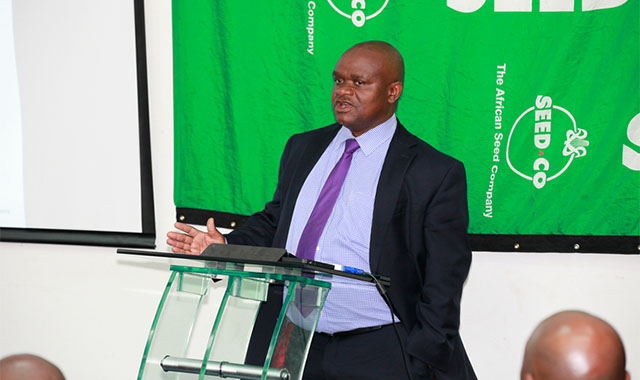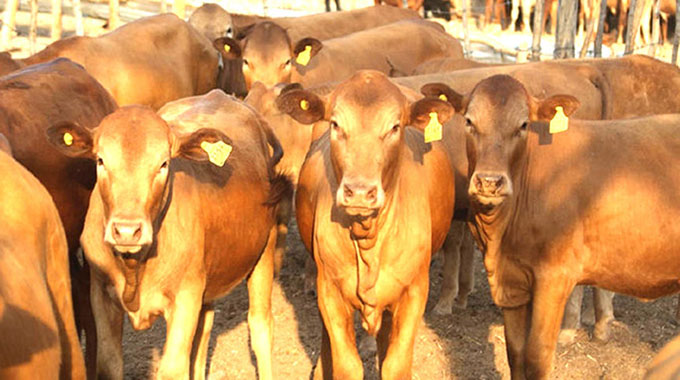EDITORIAL COMMENT: Vaccine acceleration now possible

The arrival of 500 000 more doses of Covid-19 vaccine on Saturday, with two million more doses expected by the end of this week and then large regular orders to follow, thus securing the supply chain, means that the required enhanced vaccination programme can be moved into full swing.
The new batch of doses arrived, coincidentally, on the same day that Zimbabwe vaccinated its 500 000th person with the second dose, with the total of fully vaccinated reaching 502 178 on Saturday and another 245 152 having had their first dose, but still waiting for the required four weeks for their second. Altogether we have given 1 249 508 jabs.
Under previously announcements of the enhanced programmes, stressed over the weekend by Deputy Minister of Health and Child Care Dr John Mangwiro, priority is being pushed to the border towns that have not yet achieved levels of vaccination to give herd immunity plus, with the harvests now coming in, to the tobacco floors and depots, the Grain Marketing Board depots and the cotton marketing centres.
At the same time a major effort is ready for the huge farmer markets and general markets in cities.
The four districts under a more intense special lockdown, plus other isolated hotspots that have been appearing, have been told they will have speedier access to vaccination, with many of those who need it most already working at border posts or at agricultural marketing centres and so on the high priority list.
The priorities chosen for the accelerated vaccination programmes will help slow the spread of infection as well as protect those in critical positions.
The fact that one of the four districts under intensified lockdown is centred on Kariba, a border town, and that two others, Hurungwe and Makonde, are major farming areas for both tobacco and grain, as is the fourth district of Kwekwe, shows what can happen when ordinary people assume Covid-19 is a big city problem.
While Zimbabwe has done well by African standards in getting vaccine to the people, the rate did slow somewhat this month until the last week, when administration of first doses started accelerating again.
No one in Zimbabwe due for a second dose has had to wait, since the logistics staff have made sure that enough second doses of the appropriate vaccine, the same as the first, were kept in stock. That has not always been the case in some other countries.
The supply chain now appears to be fixed, with that news coming from Minister of Finance and Economic Development Mthuli Ncube this weekend, who in the end has to find the money to pay the bills and whose Ministry has to sign off on every Government order.
So when Prof Ncube starts giving arrival dates it means he is fairly strongly convinced that the orders have been made, paid for and accepted by the supplier.
The schedule given was the 500 000 last Saturday, another two million doses a week later and then 1,5 million doses round about the middle of next month and then another 3,5 million delivered, presumably in batches, by the end of August.
China, Zimbabwe’s principle supplier, has now made it clear that it will keep our vaccination programme supplied. Chinese Ambassador to Zimbabwe Guo Shaochun made it clear that despite the pressure on the Chinese vaccine makers from their own domestic demand and other markets, Zimbabwe’s orders will be accepted.
With both main Chinese vaccines certified by the World Health Organisation, and results of trials appearing in major global peer-reviewed medical journals, there is obviously more potential demand for Chinese vaccines, already regarded as the safest, so the willingness of the Chinese to accept our orders is important.
The fact that we are using the supplies received so far, including some very welcome large gifts, no doubt satisfies those who make the decisions in China that we are a proper customer.
But we still have to maintain all those other precautions even if we are fully vaccinated, or when all the Zimbabweans most vulnerable to infection or death are vaccinated.
For a start only five percent of the 10 million people we want vaccinated to come close to herd immunity are so far vaccinated.
That is far too low a figure to put in fire-breaks or do a lot to slow infection among the general population, although vaccinating the most likely to being a source of infection obviously helps.
But secondly we have to remember that no vaccine is perfect, and by none that means none.
What vaccination does is to reduce dramatically the chances of infection, and when infected to sharply reduce the chance serious illness or death.
But while vaccination slashes the risk, and we are talking about 90 percent here, it does not eliminate it.
This is why everyone talks about the need for herd immunity, a level of immunity that stops an infected person passing on the virus to someone unprotected or someone who is not immune unlikely to meet anyone who is infected.
And if there is such transmission then the infection chain is short, like one extra person, and the chain dies.
This is pretty much what all the lockdown measures in Zimbabwe are designed to achieve, to cut each chain of infection and if possible eliminate it.
Mass vaccination is important as it stops most such chains forming and then quickly eliminates most remaining chains and shorten the rest, but until the whole world is safe, and that is when the virus joins smallpox on the extinction list, none of us are truly safe.
The recent flare up in cases, with the Government being quick to label hotspots and put in tighter local controls where needed, has made more Zimbabweans a lot less complacent.
Sitting in buses or walking the streets, it has suddenly become very noticeable that just about everyone is wearing a mask, properly, and being a bit more careful when they meet people.
The fact that small towns have been hit means that most people who saw Covid-19 as a big city problem are now taking it more seriously.
But with the surge in vaccine delivery we can use that growing seriousness to fuel the planned acceleration in vaccinations and with logistical bottlenecks eliminated we can push forward a lot faster.
When we are called we should go and get our jabs.









Comments